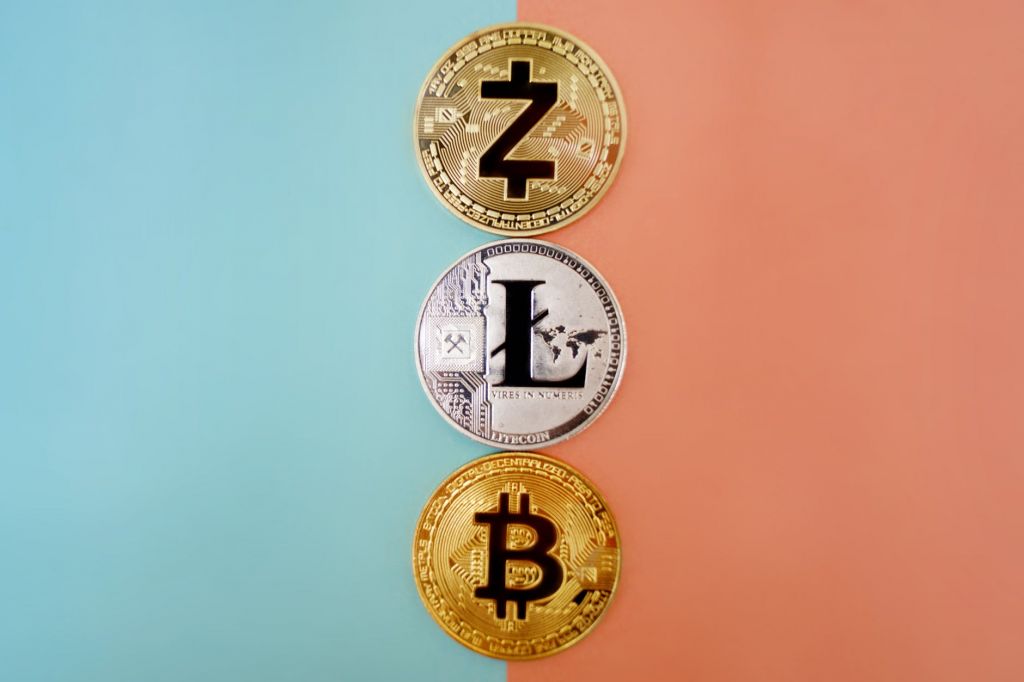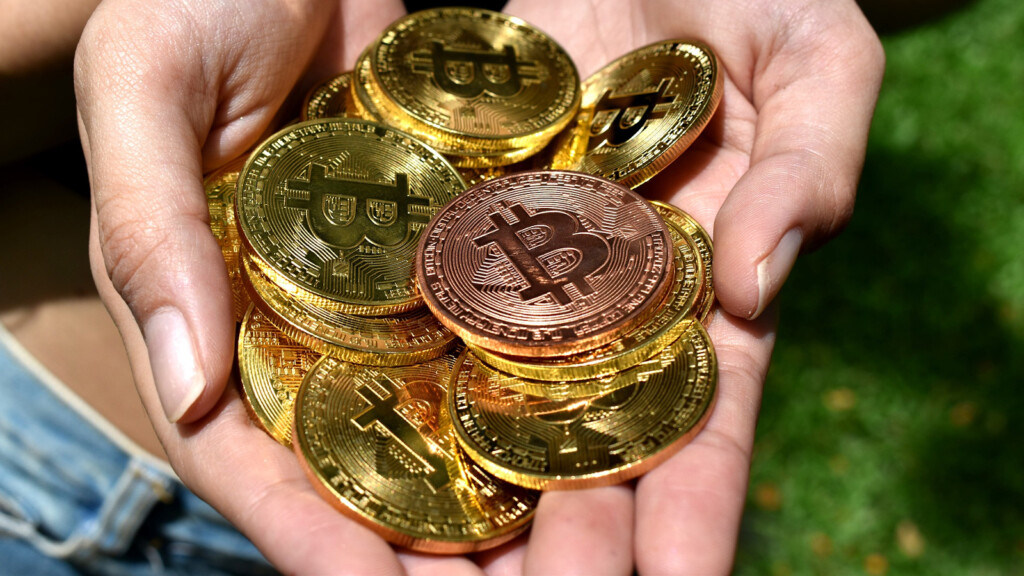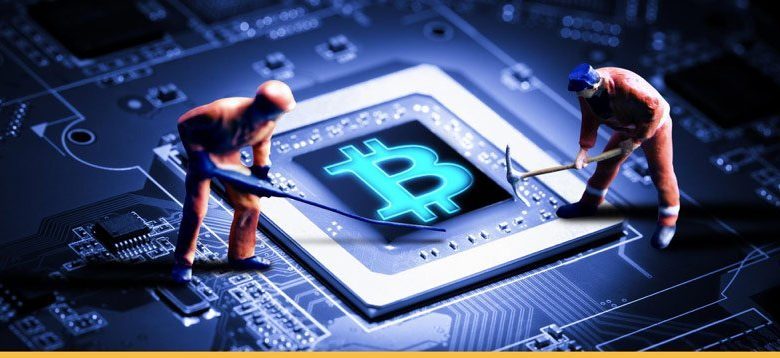Unicorn, Accelerator, Incubator, What? Let’s Learn the Fintech Lingo
Fintech is a hot new area of investment and technological disruption. This means that Fintech insiders have already created a long list of lingo and jargon to communicate with each other. The Fintech lingo flying around may seem intimidating, but if you take it one word at a time you'll see it isn't as complicated as some might want you to think. In this article, I've gathered some of the most important terms in the Fintech lingo bible, explained plainly for your convenience. So let's take a look at what the kids are saying these days.
Accelerator
The term "accelerator" is Fintech lingo that refers to the general concept of a startup accelerator. In this case, it specifically refers to a startup accelerator that's aimed at some sort of Fintech. Accelerators are organizations that provide focused aid to startups in order to help them get off the ground. A team with a hot new Fintech idea can apply to an accelerator. If accepted, the accelerator will invest money, provide mentorship and generally give the startup the best chance at becoming an independent entity. Accelerators provide this aid for a fixed amount of time. Startups are expected to "graduate" at a certain point, having achieved the needed milestones. After about three months with the accelerator, the startups will present themselves to investors, where they will hopefully get the capital they need to become independent.
AltCoin
This term may be less and less relevant these days, but essentially any cryptocurrency that isn't Bitcoin is referred to as an "AltCoin". That is an alternative coin. Bitcoin is the pioneering cryptocurrency launched by a person or persons using the pseudonym Satoshi Nakamoto. Bitcoin is a technical marvel, but since then many new cryptocurrencies have arisen. Many of which address Bitcoin's privacy shortcomings and slow transaction speed.
API - Application Programmer Interface
APIs can be found in all sorts of computer programming sectors. For example, DirectX is an API that makes it easy for video game developers to make games that will run on any hardware. It's an interface that means any software or hardware that conforms to its standards will be inter-operable.
In a Fintech context, APIs are used to enable different financial applications and services to talk to each other seamlessly. It means that banks can share their data with third-parties in a safe way, as one example. So if someone creates an application that does something useful for users with that data, both the bank and that Fintech company benefit along with their customers.
Blockchain
The blockchain is a decentralized, public ledger system. Possibly the most famous bit of Fintech lingo. It's the core technology behind cryptocurrencies and is now also being used for other applications, such as decentralized apps. Every transaction that happens on a given blockchain platform is verified and stored in a way where it may never be altered. Copies of the blockchain are synced and distributed widely. There is no central authority or infrastructure. Which means no one can shut it down or commit fraud.
It's perhaps the biggest Fintech disruptor ever created and every world government is handling it very differently. Some are embracing the possibilities and others are deathly afraid it will mess up the economy. In either case, there's no way to put the blockchain back in its box, we're living in a world with it whether we like it or not.
Collaborative Consumption
Image Courtesy of Crains New York
This is a term often used in Fintech to describe an economic model where resources are circulated between people easily. Flea markets and other grassroots markets are examples of this, but Fintech platforms have taken things to an entirely new level. Airbnb, UpWork and coworking spaces are all examples of collaborative consumption. With people seamlessly switching between the roles of consumers and providers. The end result is much more efficiency with resources and a more dynamic economy. This style of economic activity is likely to become much more prevalent in the coming years.
Crypto Token
A "token" is distinct from a cryptocurrency coin in the sense that it is a token of something else. In the case of security tokens, they play much the same role as traditional securities. That is, they represent a share in a company, voting rights or some other status. Utility tokens, on the other hand, a stand-in for a real-world asset. This can be a product or service. Usually, it's the product or service tokens that are sold to fund.
Cryptocurrency
A cryptocurrency is a form of digital cash or a digital commodity that does not require any sort of centralized system to work. It's self-correcting and self-checking thanks to something known as the "blockchain". The blockchain is a public ledger that keeps a verified record of every transaction ever made using that currency. Multiple copies of the blockchain are kept on completely unconnected systems and they must all agree using cryptographic verification. Bitcoin is the first example of a true cryptocurrency, but today there are many different takes on the concept. Cryptocurrency and the blockchain are massive disruptions to the financial industry and are currently being treated with caution by world governments.
dAPP - Decentralized Application
Decentralized applications are software applications that use blockchain technology to offer online functionality that would usually require a cloud service provider. Instead, these applications run on a peer to peer network, but use cryptography to protect each person’s privacy and data. One good example is Graphite Docs, which is similar to Google Docs but uses decentralized blockchain technology to work.
Ethereum
Ethereum is probably the best-known competitor to Bitcoin. However, Ethereum is far more than just another cryptocurrency. It is in fact an entire platform that allows people to develop crypto tokens and currencies of their own. It also has support for smart contracts and improves on many of the technical weaknesses of Bitcoin.
Equity Crowdfunding
The two words that make up the term "equity crowdfunding" go a long way to explaining what it actually means. This term basically covers the practice of giving large numbers of people who are simply members of the public the opportunity to buy equity in a venture. The traditional ways would see only people working through formal channels, but with equity crowdfunding, it becomes possible for just about anyone to have a piece of the pie.
Exit Scam
An important Fintech lingo term to know! This is a fairly common scam with Initial Coin Offerings, but the general concept exists in other contexts as well. An ICO exit scam in particular works by putting forward a fraudulent ICO whitepaper, gathering money from "investors" and then disappearing with the loot. This doesn't always happen immediately. Some scams can seem to run legitimately for a long period of time until the take is large enough. Only for the whole thing to evaporate overnight.
Financial Information eXchange (FIX)
The Financial Information eXchange is a communication protocol that isn't controlled by any one vendor. So it's essentially an open standard that can be used to send financial information usually as it relates to stock trading. All major investment banks use FIX with the total number of FIX members around 300 firms strong.
Fintech
What this whole article is about! Seriously though, any technology that invents or improves upon financial services is a form of Fintech. In modern usage, the terms usually refer to new, disruptive digital technologies that muscle in on the established financial system.
Fork (Cryptocurrency)
A cryptocurrency fork happens when a decision is made to split off from the original blockchain. In effect, a new cryptocurrency is created that is incompatible with anything that’s preceded it before the fork. The new currency usually provides some sort of relative advantage to the old one. Perhaps faster transaction speeds or better anonymity.
For a deep dive into the details of how forks work, have a look at this article.
Genesis Block
Cryptocurrencies are based on a technology known as the blockchain. Each block is a collection of verified transactions, but every chain needs to start somewhere. The Genesis Block is the very first block in the blockchain. It sets the whole process rolling, from here it's all up to the community.
Incubator
Often confused with Fintech Accelerators, an Incubator is a different beast entirely. Incubators are not the high-speed, structured programs that Accelerators represent. Instead, Incubators are about nurturing a disruptive idea that isn't yet ready to have a business model built around it. At an incubator, resources and knowledge is made available to nurture new ideas into something that could become a business.
InsurTech
InsurTech is the analogous term to Fintech, but for the insurance industry.
Initial Coin Offering - ICO
Initial Coin Offerings are a relatively new development in the world of fintech. Based on the same blockchain technology as cryptocurrency, ICOs are a way for people to quickly buy a stake in a new venture or to buy a promised product or service. So it's a form of crowdfunding that doesn't require a centralized authority to administrate. ICOs have raised millions in seconds, with almost no friction between the public's desire to invest and the ventures need for cash.
ICOs come with the same sorts of risks that any crowdfunded project has. Indeed, it comes with even more since there is no vetting process. Anyone can start an ICO and many of them have turned out to be scams. On the other hand, they can be incredibly lucrative if you back the right outfit, so their popularity remains high.
KBA - Knowledge-based Authentication
You probably already know what knowledge-based authentication is. Since some sites still use some form of it. Essentially this is a way to prove your identity by asking you for private information. Financial institutions like to use this method and if you've ever phoned your bank or insurance company they probably wanted to "ask you a few questions for verification".
Sometimes it's a pre-shared secret, such as the name of your first pet. Other forms of KBA are dynamically generated. For example, your bank might ask you how much your last transaction was for and where you made the purchase.
Of course, KBA opens many vulnerabilities for exploitation. Hackers may find information such as your mother's maiden name or pet names on social media. Which makes a password reset easy. While KBA is still widely used, the cracks are beginning to show.
KYC - Know Your Client
A mantra in the Fintech world, but also a standard practice in the investment world. Investors need to know very detailed information about your clients and how much risk they are willing to take on. Investors also need to know detailed information about their finances so that their portfolio fits their actual situation.
Mining (Cryptocurrency)
Mining is the process of unearthing new cryptocurrency units to add to the existing supply of the cryptocurrency. It's the reward for providing the processing power to make transaction processing and validation on the blockchain run. Crypto miners need to provide "proof of work" along with their validation of the latest block of transactions. This proof of work is the solution to a tough, brute-force cryptographic problem. It requires vast amounts of processing power, which is why crypto mining equipment consists of powerful processors all connected together, crunching the numbers to be the first across the finish line.
Open Banking
Open Banking is the free exchange of banking information through financial APIs. It's especially interesting when it comes to third-party developers and companies creating innovative new ways to use the data generated in the banking sector.
P2P Lending
P2P or "peer-to-peer" lending describes a family of technologies that allow regular people to loan money to other people. Without an institution such as a bank acting as a middleman. The P2P platform itself handles the administration of all transactions. Lenders put money up for lending and then earn interest on the repayments. Often this can lead to higher returns than traditional investment and certainly more than the interest earned on savings accounts.
The platform performs credit checks on applicants and allows for comparative shopping when it comes to interest rates. Lenders can choose how much risk appetite they have and diversify their risk portfolio as well. This concept is especially disruptive since credit is a key mechanism that allows banks to be profitable.
Proof of Work
A concept originating in the cryptocurrency blockchain. It's the method by which consensus between the different nodes in the decentralized network is achieved. Cryptocurrency "miners" work to solve a mathematical puzzle and then verify the latest block of transactions on the blockchain. The answer to that puzzle is the proof of work that gets a given block accepted as verified.
Pump and Dump Scheme
This type of scheme started of as a form of securities fraud where the fraudsters used various methods to inflate the value of a security. They would buy that security in massive amounts before starting the "pump". As the value starts rising, other people who are not part of the scheme start buying. When the security reaches a peak price, the scammers dump it all at the new price. Which also crashed the value. They walk away with the loot and everyone else is left with worthless investments.
In Fintech circles, this often refers to cryptocurrency fraud. Since this new technology is so unregulated, pump and dump methods are still pretty effective. They buy cheap cryptocurrencies quietly over a period of time and then start using rumors or propaganda to inflate the hype. Victims rush to buy the coin which they've been told is the next big thing and soon after the scammers dump their collection.
RegTech
The financial sector is one of the most tightly-regulated industries in the world. The cost of that regulation is significant, which means there is an opportunity to lessen a significant form of overhead in the financial services industry.
RegTech covers the technologies that automate and improve regulation. To monitor financial activity and ensure everything complies with regulations.
Robo-advisor
A Robo-advisor is a software platform that helps people grow their financial investments in a way similar to what human investment managers would do. In fact, until recently only those licensed professionals could make use of this technology. Now the middleman has been removed and the costs of getting solid automated investment management have dropped dramatically.
Smart Contracts
Smart contracts are a feature of certain cryptocurrency platforms, such as Ethereum, where executable code can be built into transactions. These Smart contracts are an implementation of this where the terms and conditions of an agreement between parties are automatically executed. This prevents one party from running away with payment or the other party failing to pay for goods and services. It's another key technology behind making decentralized financial services trustworthy.
Tokenize
This refers to cryptocurrency tokens and the process of linking them to real-world objects and resources. Tokens represent something in the real world and the holder of the token has a right to that linked resource. A commonly misunderstood bit of Fintech lingo.
Under- or Un- Banked
This term refers to the collective of people who don't have good formal banking services. Either they have limited access to banks or don't use any type of bank or financial service. This represents a major potential market for Fintech developers. Given how widespread smartphones and mobile internet services are in developing nations, there's major scope for Fintech applications among the unbanked.
Unicorn
The unicorn is a mythical creature that is impossible to find since, well, it doesn't exist. In startup and Fintech culture, the term Unicorn refers to something a little less rare than that. But incredibly rare nonetheless! Specifically, a "unicorn" is a startup valued at over one billion dollars. Airbnb and Lyft are two examples of this incredibly exclusive club. Clearly, being the one to create the next Fintech unicorn is a dream just about all people in the Fintech industry chase.
White List
Everyone knows what a blacklist is. It's a list of people or entities that are barred from participating in something. In Fintech lingo, a "white list" isn't exactly the opposite of this. Instead, it is a list of people who have registered their interest or intention to be part of an ICO sale.
Whitepaper
The general meaning of the term "whitepaper" refers to a type of technical report that concisely explains a complex issue. So that the reader can make informed decisions on the issue. In Fintech circles it generally refers to the document that tells you everything you need to know about a specific Fintech project before you decide to invest. In practice the terms almost always refers to an ICO or Initial Coin Offering. Where the whitepaper tells you who is behind the ICO, how it intends to make money and everything else you might want to know.
Enough Fintech Lingo?
Phew! That's a lot of words. That's not even the tip of the iceberg either. You can be sure plenty more terms are out there! The world of Fintech lingo is set to grow and there's no sign of stopping yet.
Are there any important Fintech lingo terms we left out? Let us know down below in the comments. Lastly, we’d like to ask you to share this article online. And don’t forget that you can follow TechNadu on Facebook and Twitter. Thanks!










